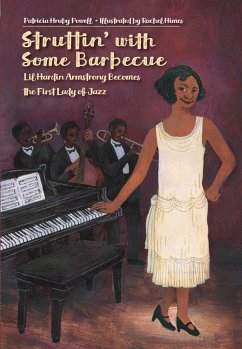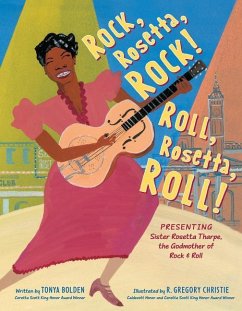
Rise Up with a Song
The True Story of Ethel Smyth, Suffragette Composer
Illustrator: Pérez García, Helena
Versandkostenfrei!
Versandfertig in 2-4 Wochen
27,99 €
inkl. MwSt.

PAYBACK Punkte
14 °P sammeln!
"In 1867 England, a girl learned to be proper and speak when spoken to. But one girl marched to a different beat. Ethel Smyth climbed fences, explored graveyards, and yearned to become a famous composer at a time when only men could publisher their music. But become a composer she did, first signing her music as E. Smyth so people couldn't guess her gender then eventually writing openly as a woman (but still sometimes not getting paid!). Ethel had had enough. She joined the suffragette movement, marching in the streets and fighting for the right to vote. She even composed the famous 'March of ...
"In 1867 England, a girl learned to be proper and speak when spoken to. But one girl marched to a different beat. Ethel Smyth climbed fences, explored graveyards, and yearned to become a famous composer at a time when only men could publisher their music. But become a composer she did, first signing her music as E. Smyth so people couldn't guess her gender then eventually writing openly as a woman (but still sometimes not getting paid!). Ethel had had enough. She joined the suffragette movement, marching in the streets and fighting for the right to vote. She even composed the famous 'March of the Women' battle cry--and directed it from her cell window with a toothbrush when she was put in prison."--












